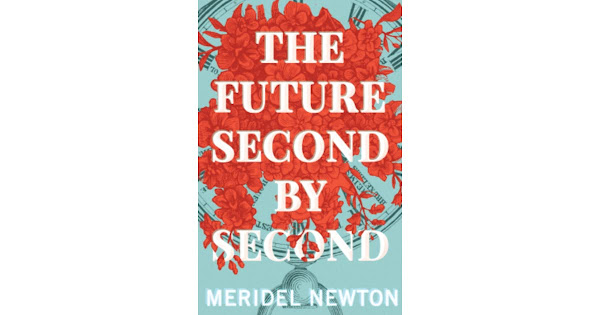Alexander Wallace steps into an apocalyptic near-future.
There is something just so crisp and so satisfying about reading a good novella. Science fiction and fantasy are genres that have historically given themselves to a certain long-winded bluster as the desire to expound on science or magic systems or world-building begins to overwhelm the story and the human element (the real reason we read this stuff, after all!). It is good, from time to time, to be able to read a nice self-contained story you could read in a single sitting (or, at least I can!). Fortunately for us all, we have another author who can do that now, and her name is Meridel Newton.
I refer to her recent novella, published from Interstellar Flight Press, The Future Second by Second. It is not Newton’s first work, but both novella and author are new to me (I learned of it through my local science fiction association). The premise is seemingly simple: in a post-apocalyptic America rebuilding from whatever cataclysm befell it (and let’s be frank; there’s a whole buffet we can choose from), a commune of free people named Osto is confronted with a gang of outlaws who threaten to take over the town. Lest she leave her people to ruin, Vasha, the commune’s elected leader, has to strike a devil’s bargain with the raiders.
The Future Second by Second struck me as if it could have been written by Ursula K. Le Guin or Robert Silverberg or Andreas Eschbach. This is in the grand tradition of ‘social science fiction,’ concerned first and foremost with people and how they respond to strange new situations. Newton takes the post-apocalyptic genre and removes from it the gritty, cynical, quasi-objectivist ruggedness that has so often characterized it and gives it something strange and fresh: hope.
The Future Second by Second is a story about political power. Mao Zedong said that political power grows from the barrel of a gun, and the marauders certainly have that, and in a world where guns are rare, no less. But Osto is a town run communally, with no private property in the Marxist sense, and decisions are made by the group. There is a profound, compelling culture clash here, when might-makes-right is confronted with cooperation, perhaps the thing it understands the least. Newton illustrates all of this with characters from all over the spectrum of believable characters in a post-apocalyptic land that is beginning to waste not and want not. In some ways, Newton is declaring herself in opposition to Mao’s infamous edict, and forces us to remember that there are human beings behind those guns.
Newton is optimistic in a way that is slowly becoming fashionable again, and it is like drinking water from an oasis of joy after wandering a desert of cynicism. The Future Second by Second dares to say that, even when the world has destroyed itself, there is still goodness and decency and sense in human hearts and human societies. In an age when we judge this species by its worst, Newton dares to say that there can be better, and that power can have an object other than power. All those who need that reminder should read this book post-haste.
Alexander Wallace is an alternate historian, reader, and writer who moderates the Alternate History Online group on Facebook and the Alternate Timelines Forum on Proboards. He writes regularly for the Sea Lion Press blog and for NeverWas magazine, and also appears regularly on the Alternate History Show with Ben Kearns. He is a member of several alternate history fora under the name 'SpanishSpy.'
Post Top Ad
Tags
# Alexander Wallace
# Books
# Print
# Review
Review
Labels:
Alexander Wallace,
Books,
Print,
Review
Subscribe to:
Post Comments (Atom)



























No comments:
Post a Comment